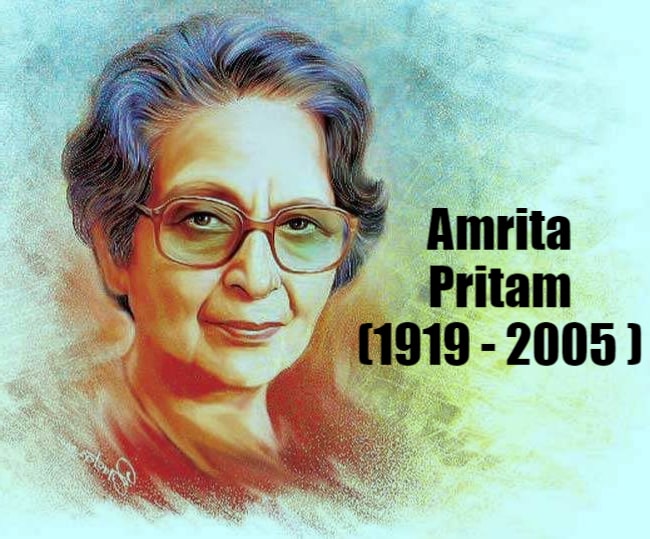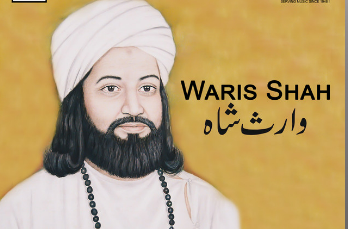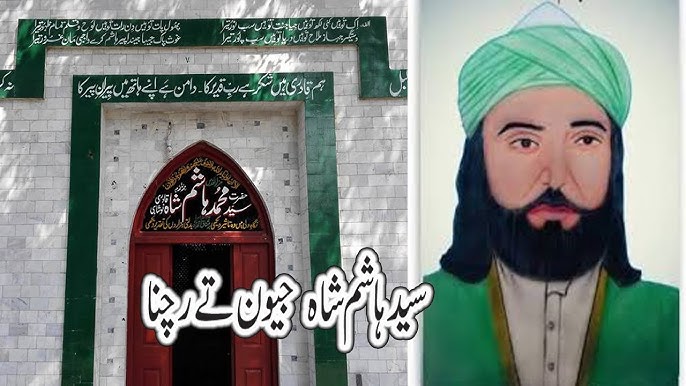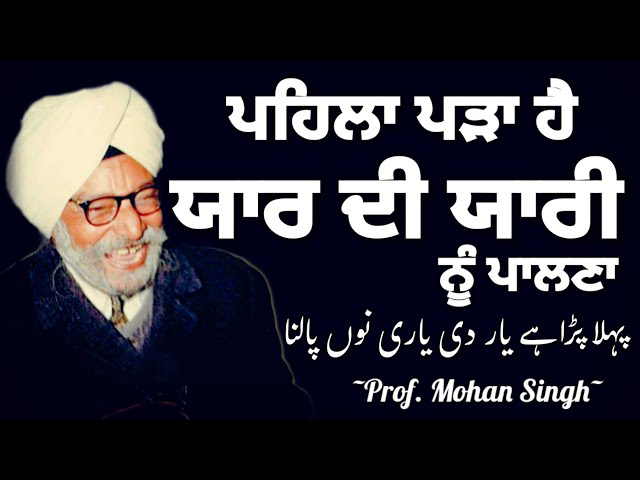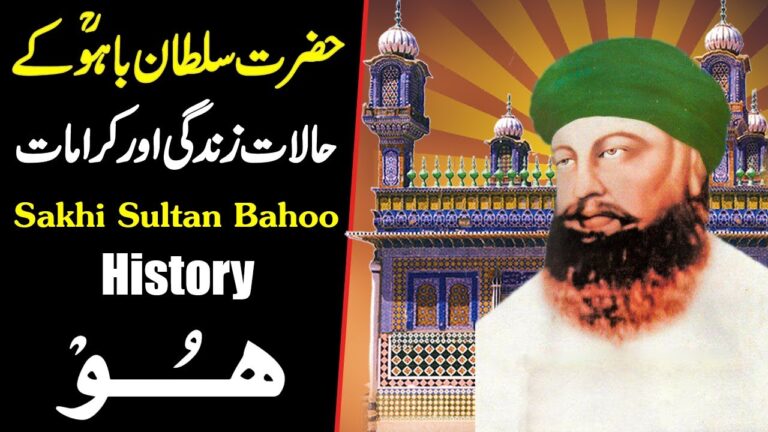Amrita Pritam The Voice of Rebellion, Love, and Partition
Amrita Pritam (1919–2005) stands as one of the most significant and celebrated literary figures in modern Indian and Punjabi literature. Born in Gujranwala (now in Pakistan) during British colonial rule, she not only made her mark as a poet but also as a novelist, essayist, and one of the first prominent female writers in Punjabi literature. Her work is deeply rooted in themes of love, rebellion, and the trauma of Partition, which left a profound imprint on her writing. A trailblazer in every sense, Amrita Pritam’s voice resonated with the struggles of women, the downtrodden, and those suffering from political violence.
Early Life and Influences
Born to a Sikh family on August 31, 1919, Amrita Pritam’s early years were marked by a deep connection with literature and spirituality. Her father, Kartar Singh Hitkari, was a poet, preacher, and school teacher, which naturally infused Pritam’s early years with a love for literature and religious thought. Her mother passed away when she was just 11 years old, a tragedy that deeply affected her and found expression in her early poetry.
Pritam started writing poetry at a young age and published her first collection at the age of 16. However, it was the political and social turbulence of the times—the rise of nationalist movements in India and the growing communal tensions—that began to shape her voice as a poet of protest and empathy. Her marriage to Pritam Singh in 1935 was largely arranged, but it did not fulfill her emotionally, contributing to her exploration of love, passion, and freedom in her literary works.
Themes in Amrita Pritam’s Work
Amrita Pritam’s body of work spans more than six decades, encompassing over 100 books of poetry, fiction, biographies, essays, and an autobiography. Her themes are varied, but several key motifs emerge repeatedly across her work, making her a distinctive voice in Punjabi and Indian literature.
1. Partition and Its Aftermath
The trauma of the 1947 Partition of India, which led to the division of Punjab into two—East Punjab (India) and West Punjab (Pakistan)—deeply scarred Pritam’s psyche and became one of the most prominent themes in her writing. Her seminal poem, “Ajj Aakhaan Waris Shah Nu” (I Call Upon Waris Shah Today), is an iconic literary piece that encapsulates the horrors of Partition. In this poem, Pritam invokes the legendary Punjabi poet Waris Shah, asking him to rise from his grave and witness the carnage that befell Punjab, the same land where Shah had written about love and humanity.
This lament for the loss of culture, humanity, and the bonds of community became the voice of a generation disillusioned by the violence and displacement of Partition. The poem became an anthem for many who experienced the heartbreak of displacement, genocide, and the breaking of familial and social bonds.
2. Feminism and Female Sexuality
Amrita Pritam is widely regarded as one of the earliest feminist voices in Indian literature. Her work frequently challenged the traditional notions of gender, particularly the patriarchal structures that confined women to predefined roles. In her poetry and fiction, Pritam explored the complexities of female desire, independence, and the societal oppression faced by women.
Her novels, particularly Pinjar (The Skeleton), explored the plight of women during the Partition of India, when women’s bodies were often sites of violence and honor. Pinjar tells the story of Puro, a Hindu woman abducted by a Muslim man during the Partition, who struggles to reclaim her identity amidst political and personal upheaval. The novel presents a sensitive portrayal of how women were doubly victimized—first by political violence and then by the deeply entrenched patriarchal society.
Pritam’s own life also reflected this rebellion. She had a long-standing, emotionally intense relationship with the renowned poet Sahir Ludhianvi, though their love was largely unrequited in conventional terms. Later in life, she shared a deep companionship with the artist Imroz, choosing to live independently of societal expectations of marriage and conventional relationships. This personal defiance of social norms is mirrored in her writing, where she frequently breaks the silence around female sexuality and desire.
3. Love and Spirituality
Love, for Amrita Pritam, was not confined to the romantic or physical realm; it was deeply spiritual and transcendent. Her later works, particularly those written in the latter half of her life, reflect a mystical approach to love, akin to Sufi and Bhakti traditions where love for the beloved is intertwined with love for the Divine. Her poetry became increasingly introspective, focusing on the soul’s journey, self-realization, and the search for eternal love.
This was a theme that also connected her to figures like Waris Shah and Bulleh Shah, whose works in Punjabi Sufi poetry often spoke of the union between the soul and God through the metaphor of human love.
Major Works
Amrita Pritam’s literary contributions are vast, but several of her works stand out for their emotional depth, narrative power, and cultural significance.
1. Ajj Aakhaan Waris Shah Nu
As mentioned earlier, this is perhaps Pritam’s most famous poem and a defining moment in her career. The poem’s evocative plea to Waris Shah has been widely interpreted as a cry for humanity in the face of senseless violence. Through this poem, Pritam not only mourns the loss of life but also critiques the communal politics that led to the Partition.
2. Pinjar (The Skeleton)
This novel is one of her most widely read and studied works. Pinjar provides an unflinching look at the atrocities committed against women during the Partition. It has been adapted into films and television series, further cementing its place as a critical examination of the human cost of political violence.
3. Sunehade (Messages)
This collection of poems further establishes Pritam’s status as a modern feminist poet. Here, she addresses themes of love, betrayal, and societal expectations, using her unique blend of simplicity and intensity to communicate deep emotional truths.
4. Rasidi Ticket (Revenue Stamp)
Her autobiography Rasidi Ticket provides insights into her life, her emotional and intellectual journey, and her defiance of societal norms. The title comes from a conversation with a friend who suggested that her life could be summed up on a revenue stamp. In response, Pritam filled her autobiography with the depth and complexity of her experiences, reflecting her ongoing rebellion against being reduced to simple labels.
Awards and Recognition
Amrita Pritam’s immense contribution to literature has been recognized with numerous accolades. In 1956, she became the first woman to win the prestigious Sahitya Akademi Award for her poem Sunehade. In 1969, she was honored with the Padma Shri, one of India’s highest civilian awards, followed by the Padma Vibhushan in 2004. In 1982, she received the Jnanpith Award, India’s highest literary honor, for her contribution to Indian literature.
Legacy
Amrita Pritam’s legacy as a writer, feminist, and voice of the Partition continues to inspire and influence new generations of writers, poets, and activists. Her fearless exploration of love, loss, and identity broke new ground in both Punjabi and Indian literature, giving voice to the voiceless and capturing the complex emotional realities of her time.
Pritam’s works have transcended linguistic and national boundaries, being translated into several languages, including Hindi, English, and Bengali, and adapted into films and plays. Her poetry, particularly the haunting plea in Ajj Aakhaan Waris Shah Nu, remains a touchstone for those grappling with questions of identity, nationalism, and humanity in a divided world.
Conclusion
Amrita Pritam was not just a poet or a novelist; she was a trailblazer, a rebel, and a witness to one of the most traumatic events in South Asian history. Her work, shaped by personal and political upheavals, offers a poignant critique of society’s injustices while celebrating the redemptive power of love. Through her writings, Amrita Pritam carved out a space for herself in the male-dominated world of Punjabi literature, breaking free from the confines of tradition and setting a bold new course for future generations of women writers.
Her voice, though rooted in the soil of Punjab, speaks to universal truths about love, suffering, and the indomitable human spirit. In every verse, every line, Amrita Pritam continues to resonate, not only as a literary icon but as a symbol of resilience, empathy, and the power of the written word to heal and transform.
